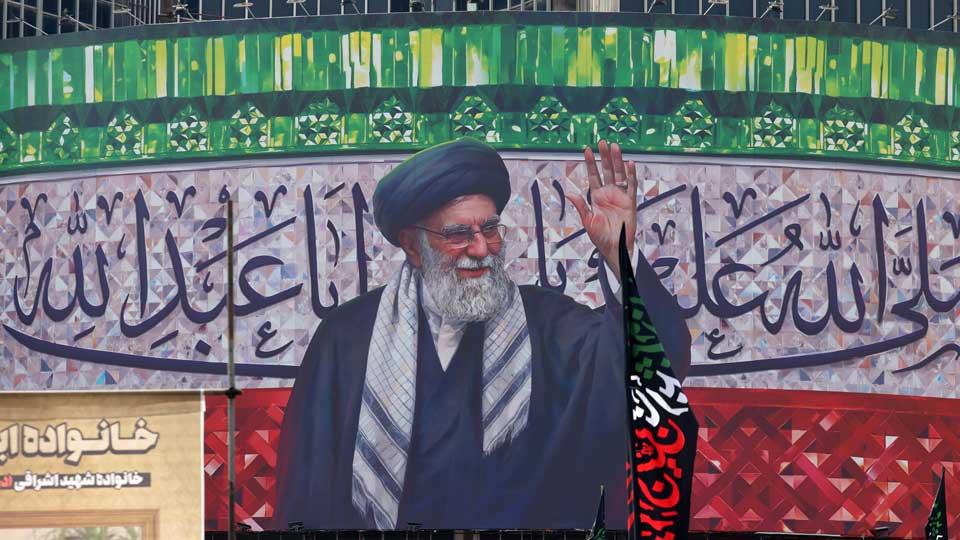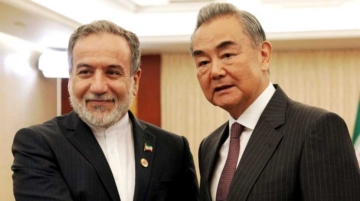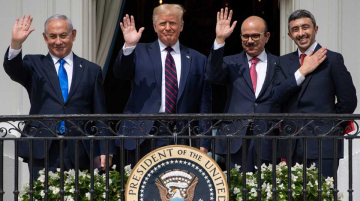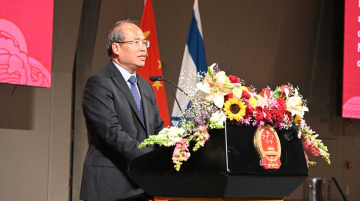
By Razan Shawamreh
The recent Iran-Israel war has underscored a sobering reality for Tehran: When push comes to shove, China is far more likely to adapt to Iran’s decline or collapse than bear the costs of coming to its aid.
During the war, social media buzzed with unsubstantiated claims that China was airlifting weaponry to Iran, and speculation abounded that China might even intervene militarily to defend its ‘comprehensive strategic partner.’ Following the ceasefire, one widely re-shared news article reported that China had sent Iran a transfer of surface-to-air missiles to help rebuild its stock depleted during the war—an assertion that China has officially refuted.
These rumors and reports belie a long-standing fact: China has no formal allies, with the notable exception of its next-door neighbor North Korea, and shows no interest in jeopardizing its strategic priorities for the sake of a geographically remote, politically isolated, and economically constrained partner like Iran.
While China and Iran share an antipathy for Western hegemony and have managed to circumvent international sanctions to build trade ties of not-inconsequential scale, their relationship remains shallow and strictly transactional. Beijing’s strategic priorities leave little room for involvement in Tehran’s military conflicts with Israel, let alone the United States.
Erring on the side of pragmatism and in defense of what it considers to be its core geopolitical interests, China thus responded to the war by following its usual playbook of lofty rhetoric and diplomatic outreach rather than offering any concrete support to Iran. In the event of any further threats to the Iranian regime’s security, we should expect more of the same.
China’s Quiet Hedging Game
Beijing has many reasons for avoiding entanglement.
First and foremost, any Chinese military involvement, including the sale of arms, would have risked confrontation with the United States, Israel’s chief military backer and ultimately an active party to the war. Even supposing that Chinese support for Iran had failed to trigger the catastrophic eventuality of direct military engagement between the two superpowers, it would certainly have thrown a wrench in Beijing’s attempts to resolve pressing trade disputes.
As Chinese trade representative Li Chenggang stressed at the conclusion of U.S.-China trade talks in Geneva just two days before the outbreak of the Iran-Israel war, the United States and China need to “jointly safeguard the hard-won outcomes of dialogue.” Not surprisingly, then, Beijing did eventually condemn U.S. airstrikes on Iran; it swiftly redirected responsibility, calling on “Israel in particular, to reach a ceasefire as soon as possible.”
China has, moreover, no interest in testing the tolerance of its European partners, which largely follow the U.S. sanctions policy with regard to Iran. Shipping arms to Iran might have triggered secondary sanctions and imperiled China’s trade with the EU, its top commercial partner.
More broadly, Beijing sees geopolitical flexibility as critical to its rise as a global power. Its restraint in the context of the Iran-Israel war reflects a Chinese strategy of cultivating global partnerships while avoiding hard commitments that could turn partners into adversaries.
In 2024, China exported $19 billion in goods to Israel—more than twice its $8.93 billion in exports to Iran. Tehran, cut off from much of the global market, depends heavily on China both for imports of manufactured goods and as a buyer of its oil and natural gas. The war presented China with a choice between siding with Iran and compromising its economic relationship with Israel, or remaining a bystander and preserving relations with both countries. That China would opt for the latter should come as a shock to no one.
Watching the Fire From Across the River
In the course of this most recent war, as in past conflagrations, Washington repeatedly called on China not just to remain on the sidelines, but actively to restrain its ‘partner,’ notably by dissuading Iran from closing the Strait of Hormuz. Reminiscent of past entreaties by the United States that China apply pressure on Russia to end its war in Ukraine, this rhetoric presupposes not only that China has leverage but also that it should wish to make use of it.
Whatever influence China might indeed be able to exert on Iran as on Russia, it has, in fact, little interest in acting as a stabilizing force on Washington’s behalf. On the contrary, China benefits from prolonged U.S. entanglements abroad—particularly quagmires in the Mideast—insofar as they distract from great power competition in the Asia-Pacific, where China’s core interests lie.
Beijing is preoccupied with pressing challenges in its immediate neighborhood, chief among them the assertion of control over Taiwan and the South China Sea. Rather than devote resources to a conflict distant from its borders and only incidentally relating to its direct interests, China prefers to ‘watch the fire from across the river,’ to borrow a Chinese idiom, waiting as rivals exhaust themselves and the situation ripens for targeted engagement.
In a word, Beijing’s approach to the war reflects not just caution, but calculation.
Iran’s Future as a Partner to China
Two possible trajectories lie ahead for Iran’s relations with Israel and the US-led international community: a persistence of tensions culminating in renewed conflict, or a thaw leading to at least partial Iranian reintegration. China’s response to either event will reflect the pragmatism we have seen over the course of the most recent eruption.
Ali Jarbawi, a public policy expert and former professor of political science at Birzeit University in Ramallah, Palestine, describes the Iran-Israel war as “an incomplete war, one that may be paused for now but remains open for future escalation.”
If the conflict does indeed resume at some later date, China is likely to maintain its current stance, avoiding entanglement with a high-risk partner and investing instead in relationships that carry lower costs.
If a future war led to the collapse of the Iranian regime, Beijing would lose a noteworthy economic partner and associate in the loose coalition of nations challenging U.S. hegemony. As seen in Syria, however, such an eventuality would not be catastrophic for Beijing, which has hedged against this outcome by avoiding excessive investment to begin with.
Another set of considerations is presented by the possibility that this war could open the door to US-Iran rapprochement. Given that possibility, Dr. Jarbawi argues that “China is likely to reconsider its relationship with Iran,” as such a shift would weaken Iran’s value as a ‘strategic partner’ totally reliant on China for economic and other forms of support.
Recent reports suggest that the United States is exploring ways to help Iran access up to $30 billion to develop its civilian nuclear energy program, which would mean an easing of sanctions and the unfreezing of restricted funds. Such a scenario would offer Iran more options both diplomatically and economically, likely altering Beijing’s assessment of its own ties with Tehran.
China’s response to the Iran-Israel war offers a clear glimpse of Beijing’s strategic priorities and approach to pursuing them. Whether Iran faces renewed isolation and conflict or moves toward a degree of rapprochement with the West, Beijing’s base calculus remains unchanged. It will avoid costly entanglements, limit exposure to volatile partners, and preserve flexibility for engagements that directly serve its core interests. Iran, for all its rhetorical and symbolic significance, is neither indispensable nor irreplaceable in this strategy.
Razan Shawamreh is a Palestinian researcher specializing in Chinese foreign policy. She holds a PhD in International Relations from Eastern Mediterranean University in Cyprus. The views expressed in this article are solely those of the author and do not purport to reflect the position of the Sino-Arabica Project.






